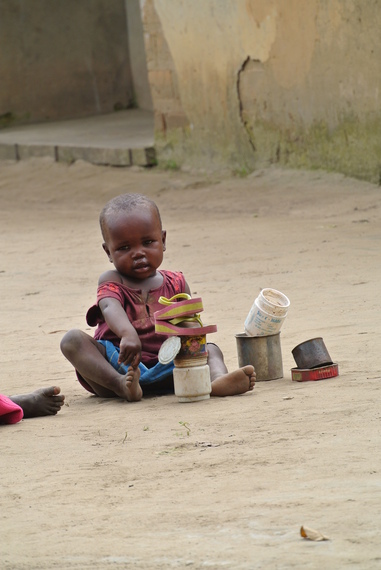I write this blog while I am still in Congo, before my memory loses the smallest of the details. I wish you could smell and feel what I have experienced and witnessed. But my words, I am afraid, are all I can share with you.
Read them slowly, since they tell the stories of real people. These are their lives. Treasure them, as they portray the voices of those who struggle every day to merely survive.
Congo, I write this for those I have met, and for those who will be in my heart for the rest of my life. I promise not to forget.
These are a few of the snapshots:
1.African pygmy people are an ethnic group that can be found in Rwanda, Burundi, the Democratic Republic of Congo, the Republic of Congo, Cameroon, Angola, and Botswana, among other countries. Most Pygmy communities are hunters and gatherers. In 2003, the UN's Indigenous People's Forum received evidence that, during the Congo Civil War, the pygmies were hunted down and eaten as though they were game animals. Some groups still refer to them as "the bush meat that talks." Still today, other ethnic groups see them as inferior. While conducting a study on what they considered basic needs, pygmy women in particular pointed out that living without discrimination was one of their priority basic needs--with the same wage, education and access to decision-making as other citizens of Congo.
2.While in the Fauna Reserve of Letni, we saw a car with a cross and chalice on the doors, making it easy to identify that this was a "car of God." To my surprise, the car stopped and this very tall white man in fatigues came out stating he was a priest. From the back of the car three young men came out, all heavily armed. They unloaded their day of "religious work," killing monkeys and pangolins (also referred to as a scaly anteater or trenggiling). They claimed they had a license to lead a safari. While I watched this in astonishment I could only think, what in the world is a priest doing conducting a safari and killing innocent animals? All of this in the name of God?
3. There are many new religious sects, sprouting like mushrooms throughout Congo. Some of them teach incredible beliefs. Families regularly take under their care small children who are not part of their nuclear family, either from a previous marriage, or because the mother has died. Some priests are claiming that some of the disasters that these communities are facing, like droughts, or loss of crops, are due to this practice, and that "those kids" need to be thrown out of the house. I can only imagine how many orphans will result from the fact that climate change is bringing new unexplained disasters to this part of the world.
4. Heard from a priest's mouth: "If a woman is part of my sect she cannot be part of any community decision-making body. This is against God's ruling."
5.Everyone wants to work. In the road that connects Brazzaville with the rest of the country, there are children with shovels filling up the potholes with dirt and sand. The drivers provide them with coins for their service.
6.Congo is one of the few countries in the world where plastic bags have been banned; everywhere you are provided with free bags made of cloth. Incredible indeed. An example to follow?
As I finish this blog I can hear the voice of a woman who asked me: Where are the schools? The hospitals? Why does a woman have to see her children die of starvation? Is life only about work and death?
